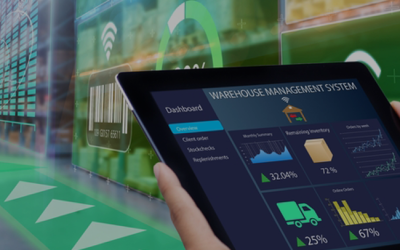Blockchain for BFSI – Looking Beyond Cryptocurrencies
Aside from the insanely popular Bitcoin, there are 2,500+ cryptocurrencies doing the rounds in the financial services space. While a financial major is building a crypto trading platform, another has filed nearly 60 blockchain patents. It’s true that the biggest names in global money have already made giant strides in blockchain testing. In this scenario, there’s a question that remains unanswered: Is blockchain, the technology that powered Bitcoin, built solely for cryptocurrencies? A deeper dive will reveal some realities and shed light on what the future looks like.
Running Diverse Applications in BFSI
There are scores of ways to make the BFSI arena a level playing field. Blockchain is only one among them. Players in the BFSI circuit are thinking beyond cryptocurrencies to make the most this fast-emerging technology. Cross border payments, global remittance, micro-lending, trade finance, and claims and settlements are just a few of its numerous applications. In fact, blockchain is a fabric that can enable global enterprises to transact swiftly and seamlessly without much ado.
Despite Challenges, the Benefits Stand Out
It pays to review the challenges and core benefits of blockchain. Since it’s an upcoming technology, there are fears about its regulation, security, manageability, speed and scalability. But blockchain is also touted to be a technology that will transform the BSFI landscape in the years to come. What’s even more encouraging is the fact that more and more organizations are working to enable cross-blockchain transactions. A boardroom deliberation topic at financial majors the world over, blockchain is slated to be the future of transactions.
As per a report, GitHub features more than 6,500 active blockchain projects on a wide range of platforms, with different languages, consensus mechanisms and privacy measures. Here’s a quick
look at the benefits:
- It is immutable since the data can’t be modified by unauthorized people.
- Since it is a distributed, decentralized network, there’s no single point of failure.
- It is innately secure, since it uses powerful cryptography to give individuals ownership of an address, and the crypto assets associated with it.
- It has the potential to reduce fraud, simplify the KYC process, enable smart contracts, streamline payments and minimize operational errors.
What to Expect from a Blockchain Provider
A trusted blockchain technology provider helps clients understand and implement the emerging technologies like Distributed Assets, Distributed Ledgers, Distributed Identity, and Distributed Storage. Though the potential and opportunities are inviting, the challenge lies in creating a reliable ecosystem with confident customers and partners. The solution should match the specific requirements of businesses and permissioned/private blockchain networks. The provider should be with the business from incubation to implementation and integration to innovation. Educational workshops, business case validation, platform selection and network integration are the usual steps suggested for a successful implementation. Ethereum, Quorum, Hyperledger, R3 Corda, Ripple, IOTA, Sovrin and IPFS are just a few of the popular and trusted blockchain platforms available on the market.
Saving money, accelerating business processes and increasing transparency are the obvious benefits of implementing blockchain. So it wouldn’t be surprising if this year witnesses more experiments and disruptions in the banking and financial services sector, thanks to Blockchain.











